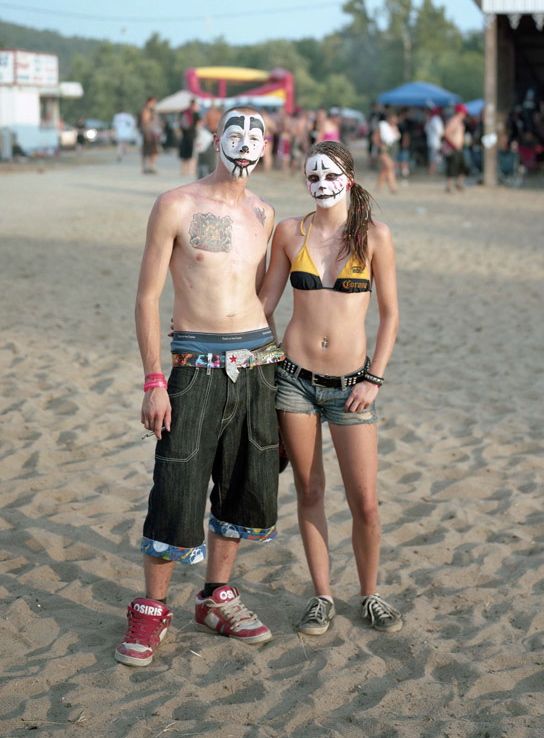 In the news this past week was the FBI’s classification of the fans — the so-called Juggalos — of the hip hop duo, Insane Clown Posse (ICP), as members of a gang (a classification that allows law enforcement greater freedoms). The group is now suing the FBI.
In the news this past week was the FBI’s classification of the fans — the so-called Juggalos — of the hip hop duo, Insane Clown Posse (ICP), as members of a gang (a classification that allows law enforcement greater freedoms). The group is now suing the FBI.
It’s interesting how closely this story overlaps one that our own Prof. Ramey has been following: the creation of “the Nones”. For, based on an answer on a survey concerning lack of religious affiliation (these people all answered “None”), demographers, journalists, and scholars alike have all concluded that there is now a coherent group of so-called Nones out there, a group with uniform motives, self-understandings, and needs.
“How will the Nones vote in the upcoming election?” we now ask ourselves.
But more careful scholars know that those who answered “None” also answered the many other questions in the survey in many different ways, indicating that it’s rather premature to conclude that they all share some essential identity based on one shared trait, no? We all also know that, just because you attend an ICP concert, buy their music, or dress up in the requisite black and white face paint, doesn’t mean that you’re ready at a moment’s notice to mobilize and overthrown the nation-state, right? But the curious thing is that in covering how ludicrous it is for the Feds to paint all Juggalos with the same brush, just because of one or two bad apples, news outlets nonetheless seem to find it utterly impossible not to think of the Nones as a coherent group.
So what is it that compels us to think that not regularly attending a sort of weekly ritual service immediately means that you necessarily share some deeply abiding affinity with others who also don’t? For I think that our failure to approach talk of the Nones in the same critical way that we approach thinking that Juggalos are all gang members tells us a great deal about how we think about religion.